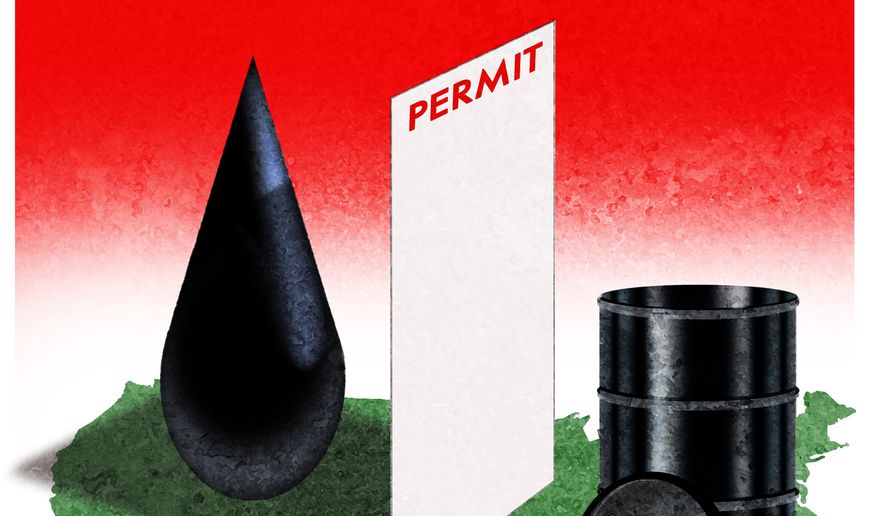OPINION:
As Sen. Tom Carper, Delaware Democrat, gets ready to add to the melange of proposed permitting legislation and as the debt limit discussions — which may include some permitting reforms — head to their conclusion, it might be worth thinking about whether the current batch of permitting reform may do more harm than good.
The reality is that there are only two changes to the current regulatory regime that would have a material effect on getting energy projects built on time. The first change would be to reform how Section 401 of the Clean Water Act is exercised with respect to energy projects. That section requires states to certify that the project in question — a road, a bridge, a natural gas pipeline, an electric transmission line — will not compromise a state’s ability to meet its water quality goals.
As you might imagine, larger projects tend to cross a lot of streams, rivers and other water bodies, and some states (you can guess which ones) routinely use the authority given to them under Section 401 as a de facto veto over energy projects, especially natural gas pipelines.
The good news is that the Lower Energy Costs Act, the House version of permitting reform, includes provisions addressing Section 401. There is no telling whether it will survive the process.
The second change would be to preclude courts from endlessly reviewing permits and their underlying data. Courts routinely send back permits and the associated environmental assessments because they don’t care for the workmanship, thoroughness, tone and tenor of the applicant, the permitting agencies or both.
In the case of the Mountain Valley Pipeline, which should have been a fairly noncontroversial natural gas pipeline project, the federal judges in the 4th U.S. Circuit Court of Appeals have sent the permit or parts back to permitting agencies (including the Forest Service, the Corps of Engineers, and the Fish and Wildlife Service) five times, delaying the project by years.
In addition to these reforms, placing all of the permitting authority for energy projects in a single agency would be optimal. Right now, however, no fewer than six federal agencies are involved in permitting any single energy project. As you can imagine, that gives those who would like to stop potential projects many opportunities to use the system against them. It also maximizes the decisions that can be litigated.
The diffusion of responsibility for permitting guarantees that the origin of any particular problem is difficult to track down and difficult to remedy. When everyone’s in charge, no one’s in charge. A single permitting agency would place accountability and responsibility for project review and permit issuance under one roof.
To encourage the permitting agencies to work together, the current legislative proposals focus on the imposition of deadlines. It is unclear how those deadlines would be enforced; it seems unlikely that agencies are going to go to court to compel action by their sister agencies.
At a recent Heritage Foundation event, Commissioner James Danly of the Federal Energy Regulatory Commission was, as he usually is, on target with his assessments of this sort of thing.
He said: “In the absence of those two reforms (Section 401 and litigatory reform), none of the other reforms I’ve heard ricocheting around Capitol Hill are really going to be effective. Setting deadlines without a private right of action won’t work, and even if you could go to a court for a petition for a writ of mandamus to force the agency to issue something, what you’ll get is an order that’s not ready for review, and it will be vacated and remanded. …
“You have a real moral risk that attends passing something that is ineffective because then how much longer will it be before Congress builds up the will to change permitting?”
He’s right. The current versions of permitting reform are, in fact, likely to preclude the possibility of substantial reforms for a number of years. That should give pause to anyone who wants to build or who believes we need to build natural gas pipelines, hydrogen pipelines, carbon capture and storage projects, electric transmission lines or offshore wind projects.
• Michael McKenna, a columnist for The Washington Times, co-hosts “The Unregulated Podcast.” He was most recently a deputy assistant to the president and deputy director of the Office of Legislative Affairs at the White House.




Please read our comment policy before commenting.